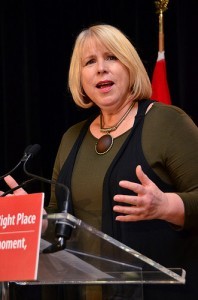
Major pharmacy chains lead march against branded drugs
By Dale Pereira, Contributor
A major case regarding the sale of generic drugs has made its way up through the hierarchy of the Canadian court system. The Supreme Court of Canada will hear a challenge to Ontario’s ban on private label generic drugs, a decision that could allow pharmacies to sell their own private-label generic equivalents of brand name drugs.
Shoppers Drug Mart, Sanis Health, and Katz Group Canada appealed to the Supreme Court of Canada after the Ontario Court of Appeal upheld regulations that limit the sale of private label drugs. According to a press release, Shoppers is pleased the court has decided to hear the case.
The provincial government will continue to fight on the other side. Ontario Health Minister Deb Matthews said in a statement, “We continue to believe that private label arrangements do not benefit taxpayers or patients and they are not consistent with our drug reforms.”
The Ontario government has a history of reducing drug costs. In 2010, professional allowances to pharmacies were banned. This resulted in pharmacies losing up to $750-million in annual revenue. Also in 2010, prices for generic drugs were limited to 25 per cent of brand name equivalents. In April, prices for the top 10 generic drugs were further reduced to 20 per cent.
In response, Shoppers and Katz legally challenged the government at the Ontario Superior Court. The court ruled in favour of the pharmacies in February 2011, affirming that the government has no authority to ban private label drugs. The Ontario Court of Appeal overturned the decision, stating the lower court’s reasoning was “misplaced and too narrow.”
Generic drugs are identical to brand name drugs, but are often retailed or wholesaled as cheaper alternatives to the patented original. How much is the government willing to spend on them? A $16-billion dollar deficit has caused the Ontario government to cut spending in many areas, including health care.
Ontario’s drug reform is inspiring other provinces to follow suit. For example, British Columbia is re-evaluating generic pricing plans to save more money. The new legislation will be modeled on Ontario’s, says BC Health Minister Michael de Jong.
A ruling in favour of the provincial government could further inspire a chain reaction of drug reform in other provinces. But if the pharmacies win at the Supreme Court, Ontario’s drug reform regulations will be struck down. Such a ruling would act as a precedent for other provinces, deterring them from following Ontario’s example.

